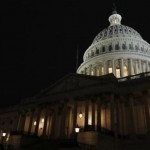Companies avoid U.S. tax system but investors lose returns

Establishing a tax domicile abroad to avoid U.S. taxes is a hot strategy in corporate America, but many companies that have done such “inversion” deals have failed to produce above-average returns for investors, a Reuters analysis has found.
Looking back three decades at 52 completed transactions, the review showed 19 of the companies have subsequently outperformed the Standard & Poor’s 500 index, while 19 have underperformed.
Among the poorest performers in the review were oilfield services and engineering firms, all from Texas.
But the analysis makes one thing clear: inversions, on their own, despite largely providing the tax savings that companies seek, are no guarantee of superior returns for investors.
The deals basically involve a U.S. company initially forming or buying a foreign company. Then the U.S. company shifts its tax domicile out of the U.S. and into the foreign company’s home country.
Corporations that invert say they are only seeking to pay the lowest tax rate they can get, noting this is what shareholders would expect them to do.
Inversion destinations have lower corporate tax rates than the United States. The top U.S. rate of 35 percent is among the world’s highest. Add state and local taxes and, in much of the United States, the headline corporate rate is even higher.
Inversions underwent a major change in 2004 when the IRS adopted a rule – Section 7874 of the tax code – that slapped new limits on the deals, making them harder to do.
Source: Reuters





























